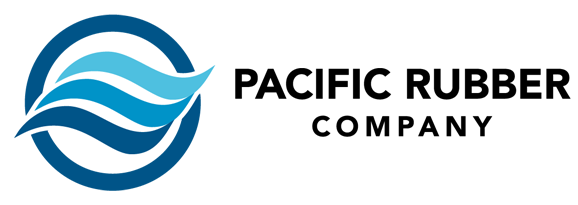Molded Slabs
Molded slabs play a pivotal role in the rubber industry, serving as essential building blocks for a wide range of rubber products. These versatile components are crafted through a meticulous manufacturing process that involves shaping and curing rubber compounds into flat, rectangular forms. Molded slabs serve as the foundation for creating various rubber goods, ranging from automotive components to industrial machinery parts.
The production process of molded slabs begins with the careful selection and formulation of rubber compounds. This involves blending different types of raw rubber, fillers, curing agents, and additives to achieve the desired physical properties, such as flexibility, durability, and resistance to heat or chemicals. Once the rubber compound is formulated, it is prepared for molding by undergoing processes such as mixing, calendaring, and sheeting to achieve a consistent and uniform texture.
Molding itself is a critical step in transforming the rubber compound into usable slabs. Different molding techniques can be employed, including compression molding, transfer molding, or injection molding, depending on the specific requirements of the final product. During this phase, the rubber compound is placed into a mold cavity that defines the shape and dimensions of the slab. Pressure and heat are then applied to facilitate curing and bonding of the rubber molecules, resulting in a solid, coherent slab.
After the molding process, the rubber slabs undergo a curing phase to ensure the mechanical and chemical properties are fully developed. This can involve subjecting the molded slabs to elevated temperatures for a specific period, allowing the cross-linking of polymer chains within the rubber to occur. The curing process enhances the slab’s structural integrity, resilience, and resistance to external stressors, making them suitable for a wide array of applications.
Molded rubber slabs serve as fundamental elements in the creation of numerous rubber-based products. These slabs can be further processed through cutting, shaping, and additional molding steps to yield intricate components for industries such as automotive, aerospace, construction, and consumer goods. Their adaptability, combined with the ability to fine-tune their properties during the formulation and molding stages, makes molded rubber slabs a cornerstone of the rubber industry, enabling innovation and advancement across various sectors.
We are positioned to provide affordable solutions for long or short runs thanks to our flexible molding production capabilities and custom rubber compositions. To fully comprehend their difficulties and offer them specialized solutions, we collaborate closely with our customers. To kickstart your production, we also provide help with tool design.
Common Name:
Molded Slabs (FINISH)
Generally Resistant To:
Moderate Chemicals and Acids, Ozone, Oils, Fats, Greases, and Solvents
ASTM D 2000 / SAE J200 Classification:
BC, BE
Chemical Name:
Polychloroprene
Generally Attacked By:
Esters, Ketones, Chloronated, Aromatic and Nitro Hydrocarbons
MIL-R-3065 / SAE J-14 / MIL-STD-417 Classification:
SC
ASTM D-1418 Designation:
CR
Elongation:
100% to 800%
Hardness Range (Durometer Shore A):
20 to 95
Compression Set:
Good
Abrasion Resistance:
Very Good to Excellent
Impact Resistance:
Good to Excellent
Rebound Rating:
Fair to Very Good
Tear Resistance:
Good
Flame Resistance:
Very Good to Excellent
Flex Cracking Resistance:
Good to Very Good
Minimum Service Temperature:
-30°F to -70°F
Maximum Service Temperature:
+220°F to +280°F
Recommended Shelf Life:
5 to 10 years
Ozone Resistance:
Good
Steam Resistance:
Poor to Good
Weather Resistance:
Poor to Good
Oxidization Resistance:
Good
Gas Permeability:
Fair to Good
Sunlight Resistance:
Good to Very Good
Water Resistance:
Excellent
Radiation Resistance:
Good, 1 x 105 Ga Gy
Poor, 9 x 105 Ga Gy
Acetone:
Minor to Moderate Effect
Amonium Hydroxide:
Recommended: Little to Minor Effect
Animal Fats:
Minor to Moderate Effect
Carbon Dioxide:
Minor to Moderate Effect
Chlorine:
DRY: Moderate to Severe Effect
WET: NOT RECOMMENDED
Fluorine (Liquid):
– – –
Fuel Oil:
Minor to Moderate Effect
Gasoline:
Minor to Moderate Effect
Hydrochloric Acid 37%:
HOT: NOT RECOMMENDED
COLD: Minor to Moderate Effect
Hydrochloric Acid Concentrate 37%:
HOT: NOT RECOMMENDED
COLD: Minor to Moderate Effect
Kerosene:
Moderate to Severe Effect
Methyl Ethyl Ketone:
NOT RECOMMENDED
Mineral Oil:
Minor to Moderate Effect
Naptha:
Moderate to Severe Effect
Natural Gas:
RECOMMENDED: Little or Minor Effect
Nitric Acid:
Concentrate: Moderate to Severe Effect
Dillute: RECOMMENDED: Little or Minor Effect
Red Fuming: Minor to Moderate Effect
Petroleum:
Below 250: Minor to Moderate Effect
Above 250: NOT RECOMMENDED
Phosphoric Acid:
20%: Minor to Moderate Effect
45%: Minor to Moderate Effect
Propane:
NOT RECOMMENDED
Salt Water:
RECOMMENDED: Little or Minor Effect
Skydrol:
Skydrol 500: NOT RECOMMENDED
Skydrol 7000: NOT RECOMMENDED
Sodium Hydroxide:
RECOMMENDED: Little or Minor Effect
Sulfuric Acid:
Concentrate: NOT RECOMMENDED
Dillute: Minor to Moderate Effect
20% Oleum: NOT RECOMMENDED
Toluene:
NOT RECOMMENDED
Transformer Oil:
Minor to Moderate Effect
Vegetable Oils:
Minor to Moderate Effect
Vinegar:
RECOMMENDED: Little or Minor Effect
- Actual shelf life could vary dramatically based on storage conditions
- Store in a cool, dry place with temperature below 75°F
- Keep away from direct heat or open flames
- Avoid contact with solvents or other fluids
- Do not store in direct sunlight
- Keep products wrapped or sealed to minimize the absorption of moisture
- Store in a relaxed condition free from tension, compression or other deformation
See Rubber Storage Conditions for more information about how to properly store your rubber products.


